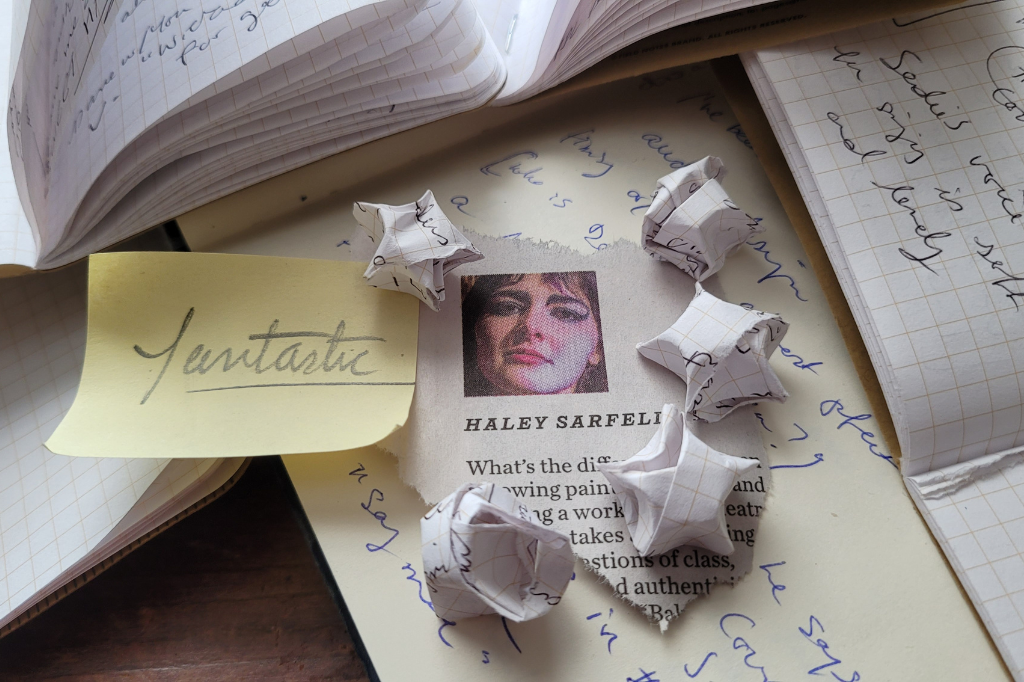Community, Leadership, Experimentation, Diversity, & Education
Pittsburgh Arts, Regional Theatre, New Work, Producing, Copyright, Labor Unions,
New Products, Coping Skills, J-O-Bs...
Theatre industry news, University & School of Drama Announcements, plus occasional course support for
Carnegie Mellon School of Drama Faculty, Staff, Students, and Alumni.
CMU School of Drama
Tuesday, April 02, 2024
Every play is fantastic
Intermission: I will never see a bad play.
I will never get bored. Every production will be excellent. Inspired. Fantastic. Garbled lines? No, that’s how it was written in the script. Missed cues? …sorry, was that supposed to be me? My bad. Wait, no, not bad. Never bad. Fantastic.
Subscribe to:
Post Comments (Atom)

5 comments:
This article very cleverly and sarcastically makes the point that in order for art to thrive, honest feedback is necessary, even if that’s not what the artists want to hear. Critics and reviewers don’t owe a company anything––if they see flaws in the performance, it’s their job to talk about them, not to ignore them. If we create a culture where we expect critics to always express only positive opinions, then like the article says, it creates a boy who cried wolf effect where truly exceptional shows won’t get the praise they deserve, or it will fall flat because everyone else is hearing the same thing. While balancing tact can be a very useful skill, we need to trust in critics and give them some grace––they are literally just trying to do their jobs. Plus, at the end of the day, it’s up to audiences to form their own opinions, and feedback helps the company improve.
This was a very nice article to read. I mean yeah every play is amazing. So many aspects to it– theater is so great because it is like creating your own world. Stepping into someone else's world can be freeing– it is about being someone else, being somewhere else. This is done by scenic designers, lighting designers, costumes, sounds, props everything is re-created to fit a story, sometimes predictable and sometimes abstract. As a child it was a shared experience to make up worlds in your head and sometimes play them out in real life. This was trhough toys, imagination and doll houses. These were the small worlds in theater makers minds. That childlike wonder theater has to it makes it so special and unique. As someone interested in scenic design, I love models and miniature things– I think some of this comes from being a child and creating worlds. Whats there not to love about theater?
I can always appreciate some heavy sarcasm and this article is not in short supply of that. There is certainly a degree of toxic positivity that can be expected at many theaters and it’s interesting to see a reviewer acknowledging that fact. Not every production ever is good, and I think that there is some importance in acknowledging that. While there is a line between critically disliking and just hating on people’s work that is fine (and oftentimes kind of hard to see), it is important to express with some honesty what we think about plays - and while there is a time, and a place for specific types of comments, honesty is important. Especially when it comes to reviews, what people are using to pick what they’re going to see, some degree of candid-ness is appreciated. This article is a different take on the dilemma than we normally see, and I’m interested to see if this conversation progresses anywhere.
I think this article very articulately summarizes what I’ve been feeling about the theater community for a long time. Recently, we have grown to be almost too accommodating. We never want to tell someone no, set hard boundaries, or even slightly imply that we don’t like someone’s work. We have become so afraid of hurting anyone’s feelings that we are not just unwilling to but unable to tell the truth. We hide behind false statements and platitudes. I’m not trying to say that we should be hateful or mean, but I think it should be more acceptable to dislike a work and make that known. Art is supposed to be controversial. Art is not supposed to be liked by everyone who sees it and when we pretend that we love everything we see, we do artists a disservice by refusing them the critical response and feedback they deserve. Without truthful critique, art can never grow or evolve.
Okay so this was fun. The article really showcases how a lot of people have been feeling about talking about your opinions in theatre. I think that this especially applies to broadway. I have talked to many people and when they think of Broadway they automatically think that it is going to be fantastic and every aspect of it is going to just simply be the best thing in the world. I honestly think that there have been shows that I watched and I would simply say that just was not good. I think that is shocking to people because if you are paying so much money to go buy a ticket and there are professional actors on the stage how could it not be good? A show can simply not be well written but the producers of the show can be convincing enough that the show will make me and that is how it is put into the theatre.
Post a Comment